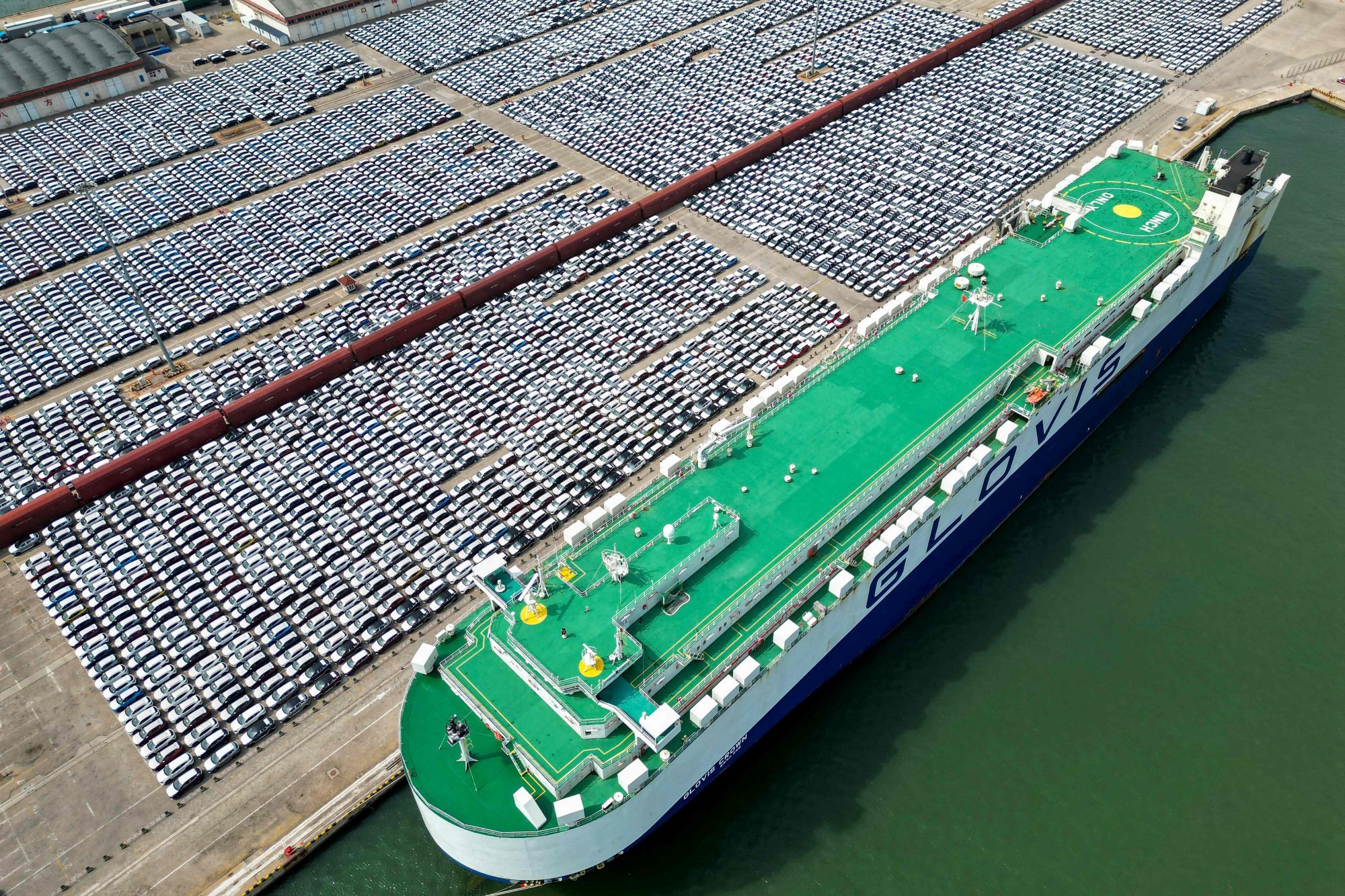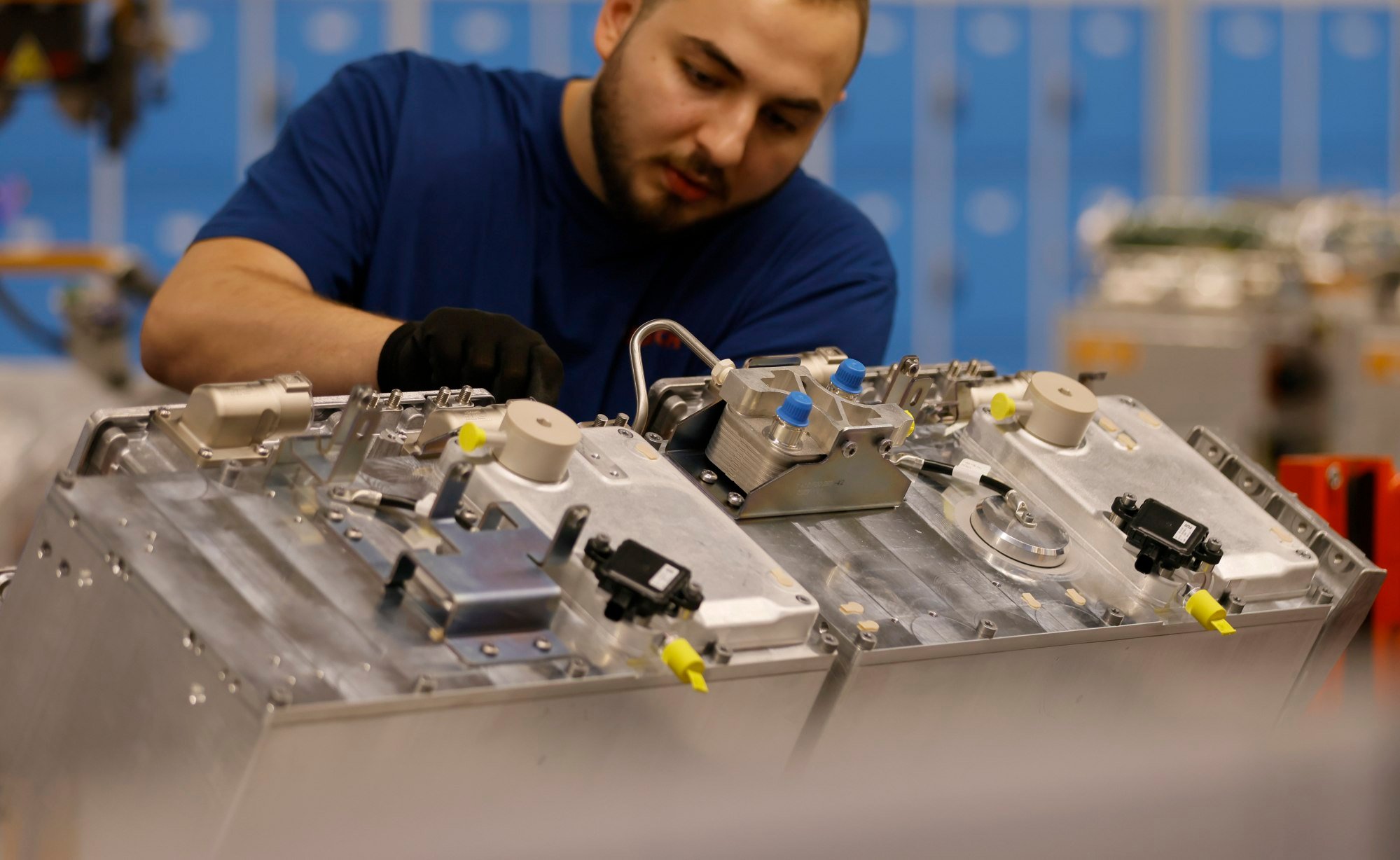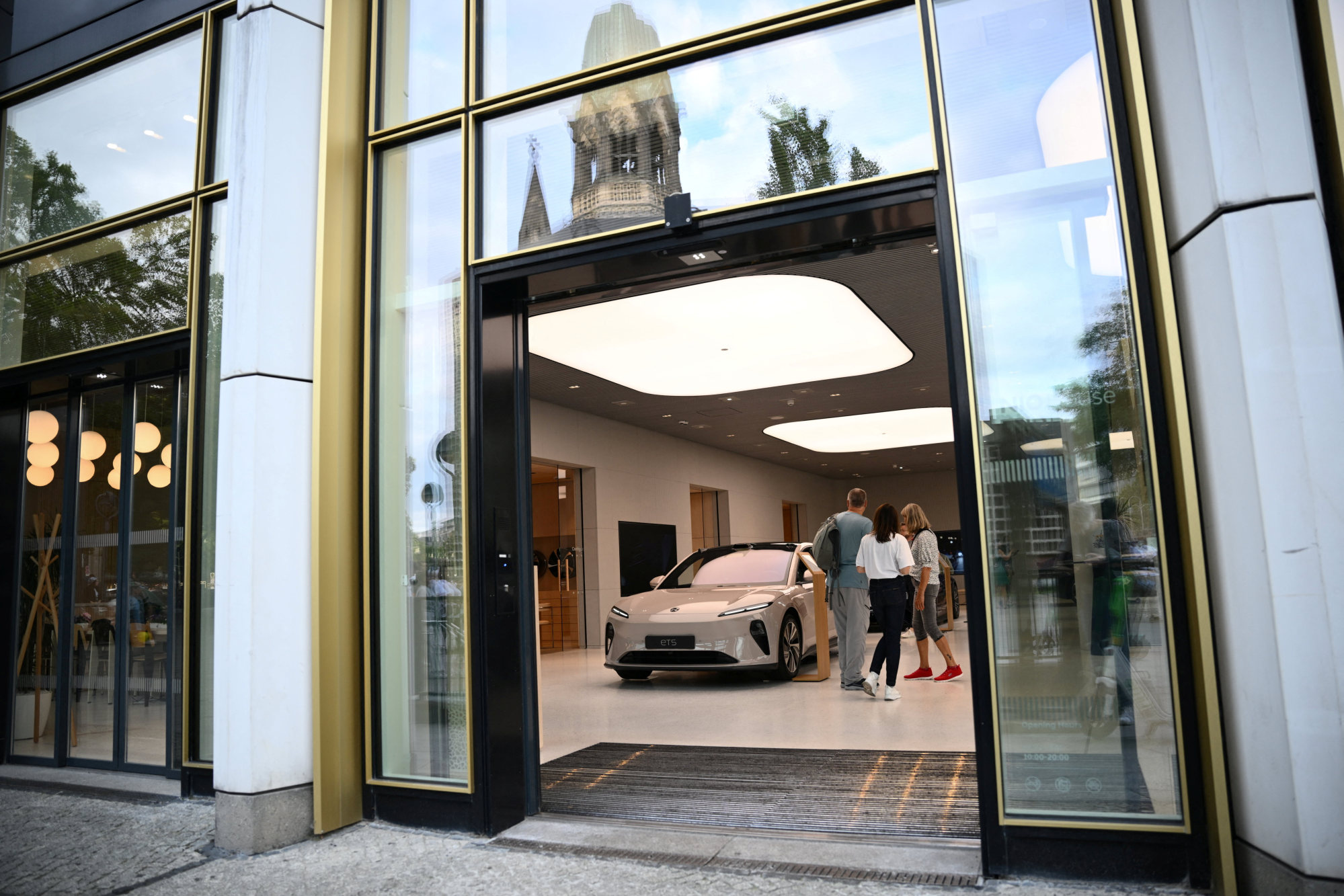
Title of top car exporter won’t make China’s auto industry No 1 in the world. Here’s what will
- China’s dominance in global sales and exports and early lead in the EV market are big advantages, but they’re not enough
- To shape the global auto industry, Chinese companies must invest in R&D to move up the global supply chain, and transform their business models to become world-class brands
The global automotive industry is undergoing profound changes and China may be the most important driver. In the first half of 2023, Chinese carmakers exported 2.14 million vehicles, according to the China Association of Automobile Manufacturers, surpassing their Japanese counterparts (2.02 million). It’s the first time China has captured the crown as the world’s largest car exporter.
While a noteworthy achievement, this does not mean China is ready to dominate the global auto industry. To lead the pack, it must secure a better foothold in the global supply chain and create more valuable brands.
It’s no surprise that new energy vehicles (NEVs) – a widely used designation in China which includes purely electric vehicles (EVs), plug-in hybrids and fuel cell vehicles – are driving the expansion of China’s auto industry both at home and abroad.
In 2022, China exported nearly 679,000 NEVs, accounting for 21.8 per cent of total vehicle exports. This proportion rose to 25 per cent in the first half of 2023.
Looking at the domestic market, from January to June this year, NEVs contributed 28.3 per cent (3.75 million) of total vehicle sales in China, compared with 3.5 per cent (48,220) in Japan. In the same period in the US, EV sales continued to grow rapidly but accounted for only 7.2 per cent of total vehicle sales.
The switch to new energy reflects the larger trend of humankind’s quest for a more sustainable future. According to the International Energy Agency, by 2030, EVs are expected to account for between 30 per cent and 60 per cent of global vehicle sales, depending on the degree of policy commitment. Similarly, a joint study by research firm EVTank and the Beijing-based Yi Wei Institute of Economics estimates that the proportion of NEVs in global vehicle sales will leap to almost 50 per cent by 2030.

With its advantages in the production, sales and export of NEVs, China has the potential to shape the global car market of the future. But to earn more from every vehicle they sell, Chinese carmakers must raise the value added in the final product.
Twelve mainland Chinese vendors with a combined revenue of US$83.8 billion are in the top 100, lagging behind their counterparts from Germany (US$217.2 billion), Japan (US$215.3 billion), the US (US$122.9 billion) and South Korea (US$90.2 billion).
CATL reflects Beijing’s strategic bet on new energy. As a result, its revenues are overwhelmingly higher than the other Chinese suppliers, more than half of which are ranked below 80th place. Except for EV batteries, automotive trim with limited technology content is the largest income source for Chinese suppliers, as represented by Yanfeng (US$15 billion) and Minth (US$2.6 billion).
In contrast, top suppliers such as Bosch and Aisin specialise in more sophisticated components: engines, electric motors and gearboxes.

In terms of brand value, China also lags behind the market leaders. According to Brand Finance, an independent brand valuation consultancy based in London, the 20 most valuable auto brands in 2023 are spread across eight countries: Japan, Germany, the US, South Korea, China, the UK, Italy and Sweden.
China’s BYD, the NEV giant, ranks No 12, ahead of Lexus, Ferrari, Land Rover and Suzuki, but behind Tesla, Mercedes-Benz, Toyota and BMW.
As we can see, China, a market leader in sales and exports, is less well-positioned in the automotive supply chain and in terms of brand value.
To be fair, the Chinese industry has come a long way from a decade ago when only one Chinese supplier (CITIC Dicastal) was in the top 100 and no Chinese brand made it into the top 30. In a relatively short period of time, it has caught up with and even surpassed the UK, France and Italy, successfully entering the space previously occupied by traditional industrial powerhouses.
But the gap with top competitors from Japan and Germany remains huge. If Beijing intends to dominate the global auto industry, it needs to advance the research and development of key technologies and cultivate more well-known brands by upgrading business models and improving user experience.

Beijing undoubtedly has both the will and ability to move this process forward. However, no progress can be made without the support of the masses. China’s carmakers must be mindful of its treatment of workers. The industry’s flag bearer BYD, for example, has been called out for its excessive overtime without adequate compensation.
In its quest to catch up with the market leaders, the auto industry must keep a clean house. Any success built on the back of labour exploitation will, in the long run, dampen motivation and trigger resistance. At the very least, let’s replace the inefficient and meaningless overtime with extra hours spent on R&D.
Chengxin Zhang is a doctoral candidate at the School of Politics and International Relations of Lanzhou University, China, and a researcher at Glory Diplomacy Youth Think Tank, China

